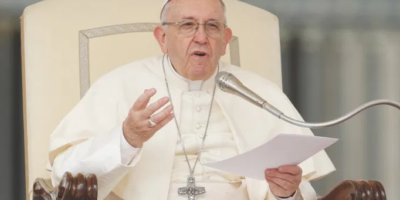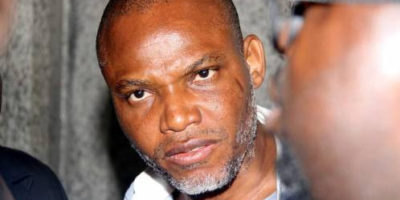Report: Inflation Eroding Value Of Minimum Wage

The rise of inflation is eroding the value of minimum wage in Nigeria, a report by the Financial Derivatives Company (FDC) has stated.
The report also projected that the continuous rise in the price of crude oil coupled with reduction in subsidy payments and improved tax collection, the monthly disbursements by the Federal Accounts Allocation Committee (FAAC) would increase to N700 billion for this month.
The latest FDC monthly economy outlook report obtained by Flavision yesterday, said the high inflationary pressure subsequently resulted in the collapse of disposable income amongst workers.
The N30,000 minimum wage in Nigeria, which is not even fully implemented by all the states, is low compared to its peer countries like South Africa with ($232.03) and Egypt with ($128.22), the report said.
With 16 per cent inflation rate as at the last report by the National Bureau of Statistics (NBS), FDC said inflation would reach its peak in the second quarter (Q2) of 2021 with seasonality effect.
It added that headline inflation would maintain an upward trend in the near term and that average inflation could increase to 17 per cent in Q1 2021.
Food inflation will remain the major driver of inflation. Rate of increase to slow in Q3’21 as harvest season commences,
the report said, adding:
Lower inflation would support consumer disposable income.
FDC called for the reconstitution of the inflation basket, adding that in Nigeria, the last review of the Consumer Price Index (CPI) basket was in 2009.
It said the weight attached to the current CPI basket was no longer reflective of current consumption conditions, stressing that punctual basket reconstitution is necessary in view of demographic, consumption and behavioural changes.
It, however, projected that headline inflation would increase towards 17 per cent but would begin to taper in the months ahead.
The FDC report noted that the Monetary Policy Committee (MPC) would maintain the status quo at its March meeting because of the positive but tepid Q4 of 2020 GDP growth.
It said the pace of economic recovery in Nigeria, as being expected on the back of losses recorded due to the COVID-19 panic, would depend on the robustness of fiscal, investment and monetary policies.
It added that growth in total factor productivity is critical to economic recovery, projecting that ICT would remain a fast-growing sector.
On the global oil market, the FDC forecasted a continuous price rally as being projected by other analysts, stating that Brent, the global benchmark for oil price, will maintain upward trajectory in the coming months on lingering supply tightness and vaccine rollouts.
Analysts project oil price to reach $100 per barrel in the next few years. Oil price could average $70 per barrel by year end,
it stated.
Based on the continuous rise in the price of crude oil, which is now trading for about $70 per barrel, reduction in subsidy payments and improved tax collection, the report predicted that the monthly disbursements by the Federal Accounts Allocation Committee (FAAC) would increase to N700 billion for this month.
In February, N640.310 billion was shared by FAAC to the three tiers of government comprising the federal government, states and local governments.
According to the report, an increase in money supply and lower interest rates could temporarily support consumer disposable income as government paid contractors.
It stated that the reduction of the landing cost of brand-new cars, as contained in the new auto policy of the federal government, which slashed automobile import levies from 35 per cent to 10 per cent, could taper transportation and logistics costs.
The policy, it however noted, would boost activities in the automobile industry.
However, the report veered into the nation’s political outlook with striking permutations, saying that the success of political parties and their candidates for the 2023 general election, will be determined by zoning, moneybags, insecurity and economic performance of the contesting candidates and political parties.
Noting that the new electoral act was likely to fast-track the 2023 election process and that primaries of political parties would mostly hold in early 2022, the report added that national working committees and conventions of political parties were likely to hold in 2021.
According to the FDC report, jockeying for political office has started and is turning out to be vicious.
It stated that the difference between direct primaries and the delegate system was already tearing the ruling All Progressives Congress (APC) apart, because in direct primaries, the governors, who form a powerful block, would lose their influence.
The report said the current revalidation of party membership in the APC meant that the delegates had lost out, adding that zoning between the North and the South may be a deal breaker.
We believe that zoning will be tested and will galvanise the Middle Belt and South-west zones,
it stated, adding that Anambra State, where an off-season governorship election is due in November, will be a major litmus test for 2023.
The FDC report forecasted that the All Progressives Grand Alliance (APGA) was likely to pick a former Governor of the Central Bank of Nigeria (CBN), Prof. Charles Soludo, as its flag bearer in the governorship election in Anambra State. It predicted bright chances for Soludo to win the election.
It said the Anambra State election would be a tough battle between three parties -the APC, the Peoples Democratic Party (PDP) and APGA, adding that the level of political sophistication will favour the choice of a technocrat over a politician.

Justin Nwosu is the founder and publisher of Flavision. His core interest is in writing unbiased news about Nigeria in particular and Africa in general. He’s a strong adherent of investigative journalism, with a bent on exposing corruption, abuse of power and societal ills.













